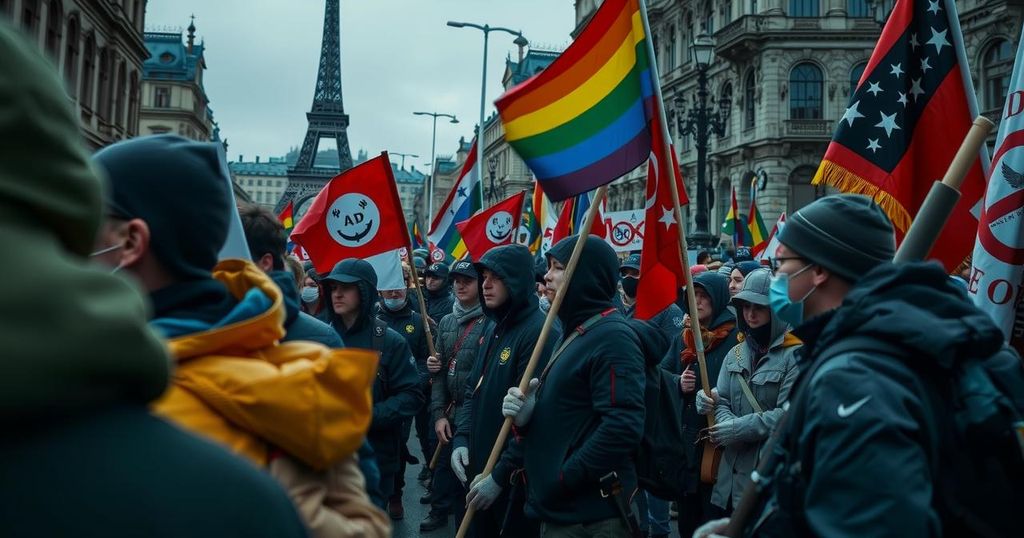Activists preparing for COP29 in Baku face significant restrictions limiting their protests, leading to frustration over their capacity to influence climate action discussions. While they utilize creativity to amplify their messages, the stringent regulations imposed by the UN and host country stifle their efforts, causing a sense of disillusionment. The challenges at this summit highlight the need for greater freedoms and opportunities for civil involvement in climate negotiations.
During COP29, activists have invested significant time and effort preparing demonstrations, yet they express a sense of frustration due to stringent rules and restrictions governing their actions. A notable event, conducted in Baku, Azerbaijan, saw activists utilizing bold imagery and creative banners to raise awareness about fossil fuel lobbyists and the urgency of climate action. However, they face limitations on their speech and the visibility of their protests, which were largely confined within the Baku Olympic Stadium, much to the chagrin of advocates who feel stifled by the current political climate and organizational guidelines. Activists like Bianca Castro and Rachitaa Gupta have articulated the diminishing opportunities for impactful protest, as the parameters set by the UNFCCC restrict meaningful engagement. Creative endeavors to convey messages, exemplified by the slogans “Weed Out the Snakes” and “Pay Up,” have emerged as responses to the perceived repression at this conference. Although reminiscent of past demonstrations flooded with public participation, the current atmosphere presents unique challenges and necessitates a strategic approach for activists.
The COP29 UN Climate Summit represents a critical platform for international dialogue and action regarding climate change, specifically addressing climate finance issues. Over the years, activists have played a significant role in advocating for climate justice and accountability, often organizing protests and demonstrations to confront policymakers about their inaction. However, recent gatherings have witnessed an increasing trend of strict regulations imposed by the host governments and the UNFCCC, which aim to control the nature and visibility of such protests. This situation has raised concerns among activists about the efficacy of their advocacy when undermined by stringent restrictions on speech and assembly, making it challenging to express dissent openly and visibly. Furthermore, the political conditions in host nations have begun to influence the latitude available for civil society participation and demonstration, leading to feelings of frustration and hopelessness among advocates who seek effective means to amplify their voices at these critical summits.
In conclusion, while activists continue to advocate for climate justice at COP29, the increasing restrictions on demonstrations undermine their efforts to make impactful statements. Despite their creative approaches to convey significant messages about climate finance and pollution, the limitations imposed by regulatory frameworks and the political atmosphere have made it increasingly challenging for them to engage meaningfully with decision-makers. This year’s events highlight the crucial need for greater freedom and support for civil society voices at future UN climate conferences, as the collective demand for genuine accountability and action grows ever more urgent.
Original Source: apnews.com







